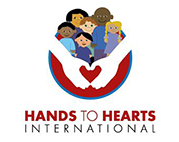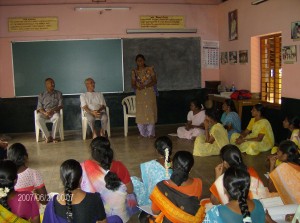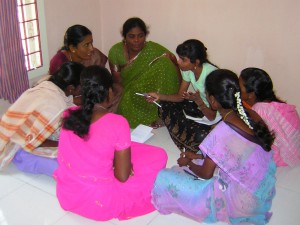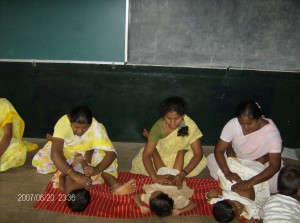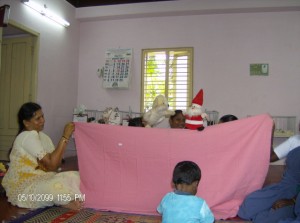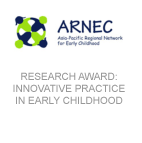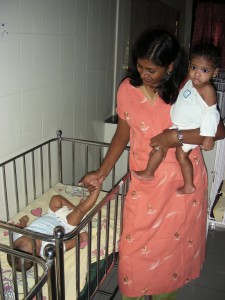
I was recently asked to nominate mothers that I know who are initiating positive change and making our world a better place. I consider myself fortunate to know many of these women, one in particular is HHI’s Master Trainer in India, Sujatha Balaje. Here is what I wrote to nominate Sujatha for an honor that would fit her perfectly….
Sujatha was a natural fit when Hands to Hearts International (HHI) needed to find our first local Trainer in India. She was smart, capable, vibrant, and tenaciously committed to serving disadvantaged children. HHI is dedicated to improving of the health and well-being of orphaned and vulnerable children through improved early childhood care. Sujatha began HHI’s operations in India and she single-handedly established HHI as a new model of excellence in care for orphaned children.
Orphanages often live in an atmosphere of mistrust and apprehension, they do not welcome outsiders into their facilities for fear of judgment and negative exposure, though the caregivers are desperate and eager for training. Sujatha worked over time to build trust with each individual orphanage and slowly her efforts paid off in spades. In the first year and half she provided 20 HHI trainings on early childhood development to 277 caregivers who care for over 1,800 orphaned and vulnerable children!
When I have gone to orphanages to speak with the Directors about what differences they have noticed since Sujatha has trained their caregivers, many of whom have only a few years of any formal education, the first thing several of them said was simply, “we haven’t had a baby die since the HHI training.” As if this was not powerful enough, they continued to describe their children as sick less often, recovering their health faster if they did get sick, needing less medicines, gaining weight, being more responsive to the caregivers and easier to soothe. They also reported that the women were now more responsive the babies, calling them by their names for the first time, more confident in their work, more nurturing to the children and that they practiced improved hygiene.
While I know the HHI Training to be extremely useful, what has taken it to the next level, to actually bring about the magic connection between orphaned children and the women that care for them – the most critical ingredient in child health – is Sujatha’s passion for Hands to Hearts’ mission and the individual connection that she makes with every woman and child she works with.
When I visit orphanages in India, I can immediately recognize Sujatha’s presence. If she has given training there, the first give away is that all the women flock to greet her with smiles on their faces in babies in their arms, eager to tell her stories of how “their babies have gained more weight this month!” I also witness the women singing and dancing with the children, giving all the children massage, and the women refer to the children by name and with a new empathy – the bonding that happens go both ways.
I am honored to know Sujatha as a friend, colleague and inspiration. Her children are fortunate indeed, but beyond that thousands more children who do not have the touch of a mother have a new chance at love and care because of her tenacious work, talent and dedication.
